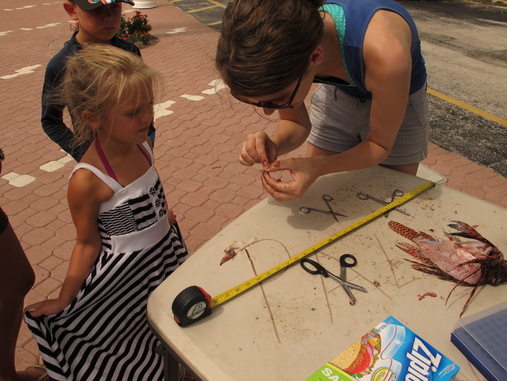|
Here at the Field School Blog we spend a lot of time telling you what we're up to, and we really like to talk about science and the amazing plants and animals of South Florida. Anyone who knows us knows that Field School started because we love teaching, and field science, and teaching field science. But that isn't all. We're here, in part, because we are working to make science a friendlier place for women. A recent study out of the University of Washington on gender disparities in STEM (Science, Technology, Engineering, Mathematics) tells some of the story. Women only earn approximately 37 percent of college degrees in STEM fields, in spite of earning more than half of all college diplomas.
The paper suggests there are three main factors contributing to this gender disparity: a lack of pre-college experience, gender differences in what students believe about their abilities, and "a masculine culture that discourages women from participating". While the first two are important, and Field School works to help address them through projects like FINS and collaborations with organizations like Gills Club and Shark Research and Conservation at the University of Miami, we're going to focus here on the third issue--a culture that discourages women. This discouragement can come in various forms, from negative beliefs about women's scientific abilities, to stereotypes about "scientists" that don't match how women see themselves, to a lack of female mentors and role models. These factors decrease women's interest in STEM fields by signaling that they don't belong there. We don't know a single female scientist who hasn't experienced this feeling at one time or another, brought on by experiences ranging from the most blatant on-the-job sexual harassment to subtle comments which undermined their sense of competence and belonging. Of course, many male scientists are amazing allies and supporters of women in STEM, and in the last decade things have changed a lot for the better--but that doesn't mean there isn't more work to do. The paper concludes that developing "subcultures" within science which are more inclusive, and make women feel accepted and valued, is the best way to encourage women to pursue their passions for STEM fields. Enter Field School. We know this is sometimes seen as a "women's problem", but we want to emphasize the extent to which it is a scientist's problem. The men at Field School have as big a role to play, and as deep a commitment to gender equality, as our female scientists and collaborators. We'll be featuring some conversations on this topic on our blog in the weeks ahead, and we'd love suggestions and feedback from students and professors on how they are trying to tackle these challenges. In the meantime, women scientists are always welcome on RV Garvin. We usually just call them "scientists", though.
0 Comments
Leave a Reply. |
Field Notes
Archives
July 2021
Categories |
|
Partner with us! We are always looking for new schools, scientists, and non-profit organizations to partner with. Please contact us here to start a conversation.
Hear from us! Sign up for our newsletter to hear about what is happening at Field School as well as upcoming offers and specials. |


 RSS Feed
RSS Feed